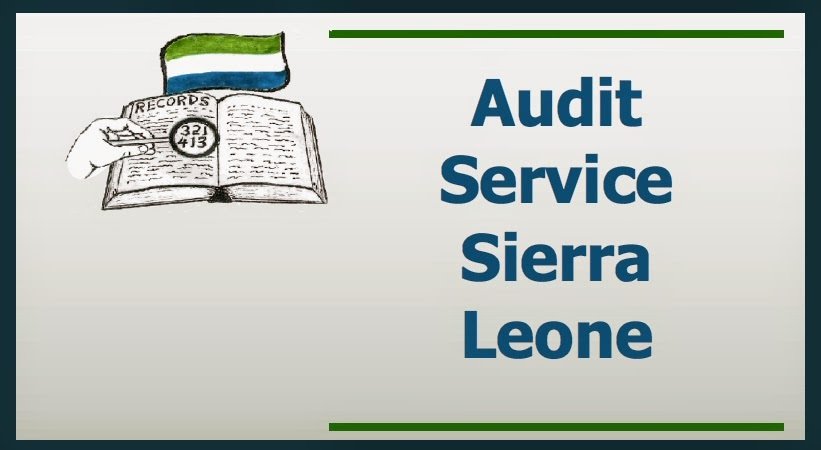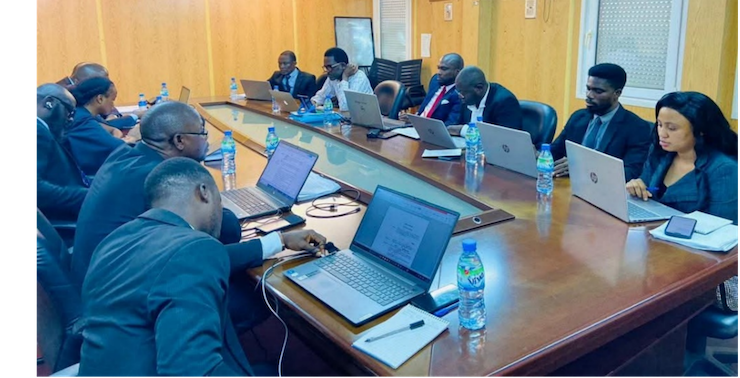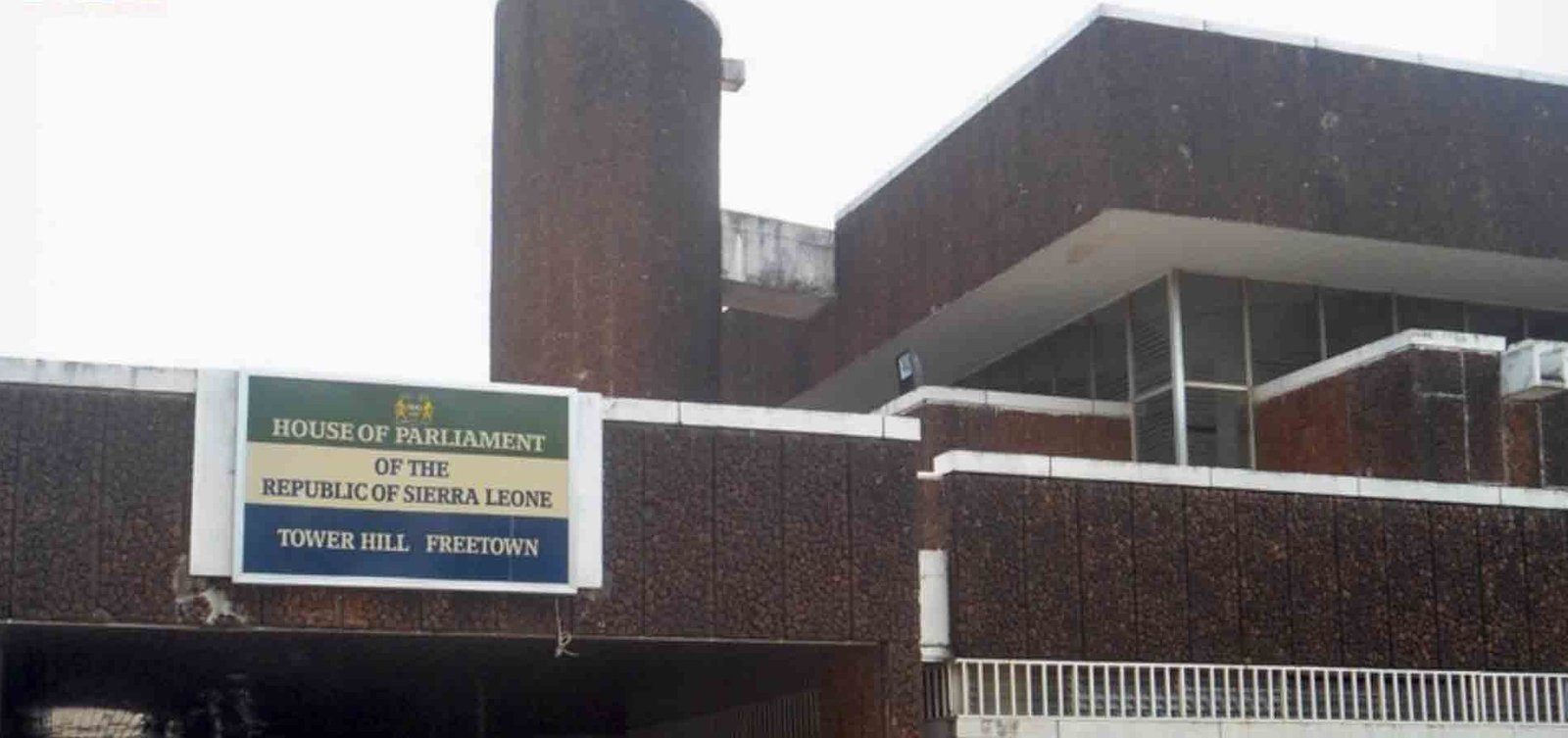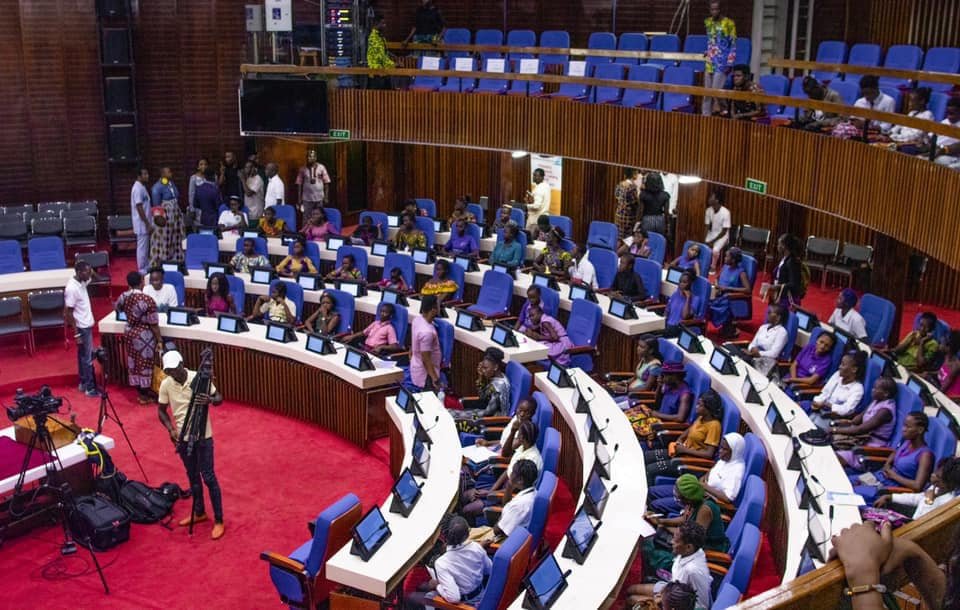Audit of The Public Accounts of Sierra Leone (FY2023): Executive Summary
 Audit Summary Tables
Audit Summary Tables
This report presents the findings, recommendations, and conclusions obtained during our audit of the Public Accounts of Sierra Leone for FY2023.
We selected samples of transactions from the Integrated Financial Management Information System (IFMIS) on a risk-basis, and examined the underlying supporting documentation. We also verified the accuracy of the compilation process used to produce the Public Accounts and reviewed the system of internal controls in place. These include but not limited to, segregation of duties, authorisation, and record keeping.
We undertook a total of 157 audits: 63 Ministries and Departments, 67 Public Enterprises and Commissions, 22 Local Councils, three Diplomatic Missions, and two Performance audits. The findings highlighted in this report were those not addressed or resolved by MDAs during the audit process, but considered significant to be brought to the attention of Parliament in accordance with section 119 (4) of the 1991 of the Constitution of Sierra Leone.
Irregularities Found in this Report In this report, irregularities are considered as commissions or omissions by MDAs, contrary to the Public Financial Management Act (PFMA) and Regulations, contract agreements, and other applicable statutory instruments that were in existence during the audit period. These are classified under the following categories: vi Statutory deductions not paid Assets and stores management Expenditure management Salaries and payroll management Procurement and contract management Revenue management.
A summary of the overall irregularities with financial impact identified during the course of our audit is given in Table 1 below.
Public AccountRevenue The Government of Sierra Leone's General-Purpose Financial Statements for FY2023 shows revenue growth which was driven by the automation of revenue streams. Despite positive measures put in place by the NRA, gaps in revenue assessment, collection, and reporting persist.
Below is a summary of our findings: Revenue not Traced to the Consolidated Fund Transit banks are supposed to transfer revenue to the Bank of Sierra Leone's (BSL) Consolidated Fund (CF) within 24 hours.
However, an analysis of the GST and the Income Tax remittances and prepayment accounts of oil marketing companies and mining companies revealed that transactions amounting to NLe34,527,680.85 were not traced to the CF at the BSL. Tax Liabilities Due We observed that taxpayers owe the Government of Sierra Leone the sum of NLe114,727,344 in tax liabilities, which was not included in the Financial Statements.
The Accountant-General should recognise all domestic revenue arrears in the GPFS as required by Regulation 73(1) of the PFM Regulations, 2018. Non-compliance with Clauses in Contract Agreements The non-compliance with clauses in contract agreements between companies and MDAs resulted in a revenue loss of US$7,460,427 which is equivalent to NLe170,369,295.14 as evidenced below: Government did not receive royalty payment of US$744,993 for e-passports produced by HID CID Limited at the Sierra Leone Immigration Department during the review period. A contract agreement for the Ace Submarine Fibre Optic Cable Landing Station and Ancillary Infrastructure was signed between the Ministry of Information and Communications and Zoodlabs (SL) Ltd. but there was no evidence that the agreed annual fixed fee of US$1,440,000 was paid by Zoodlabs (SL) Ltd.
The agreement between the Ministry of Mines and Kingho Railway and Port Company Ltd. was not ratified by Parliament, raising concerns over the legality and enforceability of tax exemptions granted to Kingho Railway totalling US$5,275,434 through this agreement.
Duty Waivers and Concessions Granted to Individuals/Institutions without Documentation Duty waivers worth NLe3,197,986.1 were granted to 31 businesses without necessary documents, including registration certificates, line ministry approval, customers' valuation certificates, and packing lists. Some entries for home use (IM4) declarations made by the Lungi Department of the NRA claimed waivers, but no documents were uploaded to the system to support same. The total tax waiver granted to the IM4 declarations amounted to NLe8,698,923.58.
RECURRENT EXPENDITUREExpenditure not Supported by Relevant Documentary Evidence . A review of withdrawals from selected MDs imprest bank accounts revealed that transactions totalling NLe18,129,006.37, US$3,004,387.25 and €3,615.48 were not supported by relevant documentary evidence. We therefore could not ascertain the purpose of the expenditures.
PUBLIC DEBT Outstanding Loans to State-owned Enterprises not Recovered We observed that government provided loans totalling NLe200,599,603 to state-owned enterprises (SOEs), with an expected repayment date of 31st December, 2023. Nonetheless, these loans remain outstanding.
CASH AND BANKPayment to Contractors Using Selling Rate Instead of Mid-rate Despite contracts clauses stipulating mid-rate conversion for payments, we observed that several payments were made using selling rate, resulting in variances totalling NLe3,166,907.88 for various cheque payments.
PAYROLL AUDITThe Government payroll is a crucial part of the General-Purpose Financial Statements. This chapter focuses on the payroll system centrally managed by the AGD and the HRMO. It highlights areas of concern, compliance, and makes recommendations for improvement. We observed the following: Amendments to the Payroll without Documentation The database revealed unsupported amendments to the payroll. These amendments include additions, deletions, and salary adjustments amounting to NLe3,931,942.12, NLe3,620,944.92, and NLe425,538.75 respectively. This violates Regulations 111&112 of the PFMR, 2018. We therefore recommended that the Director of Recruitment and Selection provide evidence for all additions and deletions to and from the payroll, and the Director of Payroll Administration should provide evidence for salary adjustments.
Payment of Salary Arrears without Approval and Documentation A review of the Arrears Report revealed that government employees were paid arrears without approval and documentation. We observed that the arrears paid amounted to NLe1,006,129.37, indicating a weakness in the internal control system.
We recommended that the Director of Payroll Administration should recover unjustifiable payments and enhance internal control mechanisms for proper verification and authorisation of arrear claims and other payroll transactions. Allowances Paid without Deducting PAYE Taxes We selected and reviewed six of the 15 payroll categories and observed that several allowances were paid without deducting PAYE taxes. This led to excess payments of allowances to personnel resulting in a financial loss of NLe198,383.86. We recommended that the Accountant-General should recover the excess payment of allowances to staff, and pay same into the CF. Study Leave Granted without Evidence of Approval and Bonding We observed that 60 personnel were granted study leave without evidence of approval and bonding. The total gross salaries paid to these staff amounted to NLe2,180,090.11.
The risk is that these personnel could have been granted leave without meeting the eligibility requirements. We recommended that the Director of Training and Career Development should provide supporting evidence justifying the bases of granting these study leaves. Annual Leave Allowances Paid to Personnel on Study Leave The study leave schedule revealed that the annual total leave allowances paid to officers on study leave was NLe697,984.91, breaching Rule 6.20 of the Civil Service Code, thereby resulting in financial loss of government funds.
Discrepancies in NASSIT Contributions and Payments We observed that there were discrepancies regarding the dates of birth of 108 staff in both the Civil Service Management (CSM) system and the NASSIT database. Some staff profiles had incorrect NASSIT numbers, leading to unreconciled payments in the NASSIT suspense account. NASSIT deductions and contributions were also not made for 148 government employees. Monthly payment vouchers were not provided for audit inspections, and the unpaid NASSIT contributions amounted to NLe134,927,621.91.
Names of Government Employees above Retirement Age Still on the Payroll We observed that salaries were paid to government employees above the retirement age. The annual gross salaries paid to these personnel amounted to NLe56,424,942.07. Evidence such as extension letters was not provided to support the payment to overaged staff upon request. We also observed that some staff in the CSM were without National Identification Numbers (NIN), potentially leading to financial losses for the Government.
We recommended that the HRMO should provide evidence of approved extension letters, reconcile the dates of birth of the 108 staff in both the CSM and the NASSIT database and take corrective action to rectify the NIN. Ineffective Compliance with Performance Appraisal Methods The HRMO's performance appraisal methods were found to be ineffective, with only 22.84% of Grades 1-10 staff completing target-setting metrics. Despite 160 confirmed and promoted staff, no evidence was submitted to confirm their performance assessments. This risk of non-assessment of staff performance hinders the identification of strengths and weaknesses of employees, and the Director of Performance Management should implement punitive measures.
INFORMATION SYSTEMS AUDITInformation system audit is a type of IT audit that examines and reviews IT systems to ensure they comply with legal and regulatory requirements, meet business goals, maintain data integrity, and be effective. It covers financial, compliance, and performance audits. We conducted the audit of the Integrated Financial Management Information System (IFMIS) and the ASYCUDA system. We focused on operational, functional, and system-design deficiencies. The audits involved reviewing the general and application controls of both IFMIS and ASYCUDA, assessing upgrades, and the physical examination of infrastructural installations.
We conducted interviews with key stakeholders and further substantially verified transaction details. From our review, we highlighted areas of concern, and compliance, and made recommendations for improvement. The system for triggering HRMO about retirement dates is insufficient, allowing salaries of retired personnel to be processed without detection. Other financial systems such as the ITAS are not interfacing with the IFMIS, limiting transparency and accountability. Common issues like inadequate backup systems, untested backup files, inadequate IT policies, and non functional key modules were identified.
These problems have not been resolved although they have been raised in previous audit reports. The Electronic Funds Transfer module in the system was not utilised to improve custom duties and tax payments. ICT issues were also observed, but due to their sensitivity and security implications, they were limited to correspondence with management. Several recommendations were made to improve on the system. Those charged with governance should establish a real-time automated backup system for the IFMIS, integrate IFMIS and ITAS, develop a classification policy, issue valuation certificates within the ASYCUDA, establish an offsite automated backup system for the ASYCUDA, and put into use the Electronic Funds Transfer module in order to simplify custom duties and tax payments.
MINISTRIES AND DEPARTMENTSOur audits of Ministries and Departments (MDs) are risk-based compliance audits, focusing on high-risk areas. We examined transactions and assessed compliance with laws, policies, and regulations. We inspected and analysed their books of accounts, financial record keeping, physical custody, and banking procedures. The audit objective is to determine compliance with laws, protect assets, and ensure financial records accurately reflect the financial position and operations.
Irregularities with financial impact across MDs amounted to NLe152,604,739.25, US$10,464,814.25, and €3,615.48.
This is due to lapses in contract management, inadequate payments, and weak revenue management. Withholding taxes were not deducted from payments to suppliers, imprest accounts not properly closed out, fixed assets are not adequately recorded, and salaries are made to non-existing staff. While some improvements have occurred, challenges persist in making requested documents available for auditors' review, and some entities also failed to respond adequately to audit queries. The 2023 audits suggest improvements in resource management, however more work is needed to ensure economy, efficiency and effectiveness.
LOCAL COUNCILSSection 88(3&4) of the Local Government Act, 2022 mandates the Auditor-General to submit a report of the audit to the local council concerned and the Minister, highlighting any irregularities in the accounts. The Minister must also present the Auditor-General's report and actions to Parliament.
The objective of the audit is to evaluate the 2023 Financial Statements of the 22 Local Councils (LCs) to ascertain their compliance with International Public Sector Accounting Standards and relevant legislation. It also assessed the reasonableness of financial documents and internal control procedures for sound financial management. The compliance audit is to obtain reasonable assurance that the transactions comply with the Public Procurement Act 2016, Public Procurement Regulations, 2020 and contract terms.
The audit findings in this report were discussed with the management of the 22 LCs. Their responses were considered when concluding on the issues raised. The total value of irregularities in our 2023 audits of the 22 LCs amounted to NLe4,764,882.60. These irregularities were identified in areas such as revenue, procurement, expenditure management, contract management, payroll management, statutory deductions, and stores and inventory management.
13-01-2025














